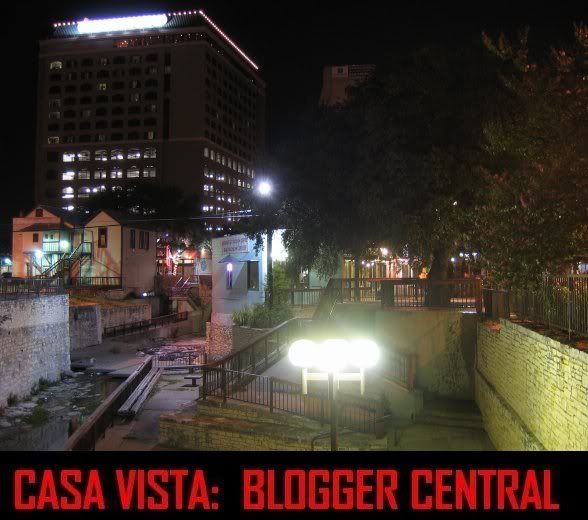From Wikipedia:
Má vlast (traditionally translated as My Country or more literally My Fatherland) is a set of six symphonic poems composed between 1874 and 1879 by the Czech composer Bedřich Smetana. While it is often presented as a single work in six movements, and outside of Vltava almost universally recorded that way, the individual pieces were conceived as a set of individual works.
In these works Smetana combined the symphonic poem form pioneered by Franz Liszt with the ideals of nationalistic music which were current in the late nineteenth century. Each poem depicts some aspect of the countryside, history, or legends of Bohemia.
From Peter Gutmann:
...Eventually Smetana behaved erratically, hallucinated conversations with imaginary visitors and ultimately was consigned to a lunatic asylum from which he never emerged. But before succumbing to his demons, Smetana surmounted and transmuted his pain into a work of unparalleled scope and power that perhaps could only have emerged from unfettered imagination set adrift from the bounds of sonic reality. To Marta Ottlová, it was a musical apotheosis of everything dear to Smetana, filled with mythical and historical reminiscences and propelling his emergent nation toward a vision of the future. Louis Biancolli deemed it Smetana's artistic manifesto, a vivid tapestry in which compatriots would treasure their glorious history and envision a still nobler future, and outsiders would understand his land and come to love it, too. Paul Myers agrees: "Although it remains the work of a Bohemian composer, it communicates an international message of pride and love of homeland." Smetana called it, simply, Má Vlast (My Country)...
...The most popular of the six movements, often heard on its own, is "Vlavta" ("The Moldau"), a vivid portrait of Bohemia's mighty river from source to end. Smetana conceived the seminal idea for the opening during an 1867 picnic at the conjunction of the two mountain brooks, which he depicts with flutes and clarinets, each gurgling in constant motion, as pizzicato strings highlight glints of sunlight on the rippling surface trickling over the rocks. The brooks coalesce into a swift stream whose lovely melody may sound familiar, as it's derived from the same folk source as "Hatikva," the Zionist, and now Israeli, national anthem. As the river swells and courses through the countryside, we hear hunting horns, a wedding dance, nocturnal nymphs, foaming rapids and a majestic flow past Prague before disappearing from sight as it joins the sea...
...Strikingly emphatic dynamic accents in a 1943 set by Otakar Jeremias and the Prague Radio Symphony (Lys 137), possibly kindled by wartime patriotic fervor, heralded a more proactive,yet probably equally authentic, model that may have inspired my two favorite readings, both by Rafael Kubelík. Son of a famed violinist, successor to Talich as head of the Czech Philharmonic, and a paradigm of integrity for Czech artistic life during Nazi occupation, Kubelík's musical and patriotic credentials were secure. Indeed, he cut a delightfully fluent "Moldau" with the Czech Philharmonic in 1937 (Lys 050). But, deeply principled, he could not abide Communist constraint and left Czechoslovakia after the 1948 coup to spend the remainder of his career in exile. As he put it, "A caged bird cannot sing. I left my country but I did not leave my nation. My nation was in my heart all the time." Reveling in a freedom denied his homeland, he fervently advocated Czech music throughout the world by infusing its great orchestras with Slavic spirit. He joined many fellow compatriot refugees in the Chicago Symphony in 1952 to deliver the most fervent of all recorded Má Vlasts, bursting with ecstatic passion and vitality and captured in superb detail (but heavy overload distortion) by Mercury's single microphone "Living Presence" technique (now on Mercury 434 379). In a 1970 stereo remake, he ignited the often tepid Boston Symphony to unaccustomed heat (DG 29183). At long last, once the "velvet revolution" ended Communist rule, Kubelík emerged from years of illness and retirement to return home and open the 1990 Prague Festival with, of course, Má Vlast (Supraphon 1208). It's a striking performance, rife with poignant symbolism – reunited for the first time in 42 years, the Czech Philharmonic plays for its former leader with breathtaking focus, transcendent eloquence and a palpable aura of deep, abiding love that channels and conveys the intense emotions Smetana himself must have felt in transforming his maddening prisons of silence and din into a torrent of fervor for his country and his people.
Video of the 1990 performance of Vltava with the Czech Philharmonic Orchestra (Rafael Kubelík):
A favorite of mine - Ferenc Fricsay conducting the Deutsches Symphonie-Orchester Berlin:
Footage of Ferenc Fricsay rehearsing Vltava with the Sudfunk Symphony Orchestra:
this must be the place....goin strong , yeah baby!!!
Monday, April 27, 2009
Bedřich Smetana - Má vlast - Vltava (Die Moldau - The Moldau)
This in from
someclouds
at
9:19 AM
Subscribe to:
Post Comments (Atom)


















Ma Vlast is absolutely my favorite classical piece. First time I heard it was 3am or 4am in an underground (literally, not figuratively) bar in Praha. The DJ dropped Vltava after an intense iberican set and damn the crowd went absolutely apeshit.
ReplyDeleteMr. Berlin actually has the cd version of that Kubelik performance.
props.
I first heard it as a rhapsody selection in the Decca Recordings (Stokowski). Not quite as romantic...I guess you couldn't listen to it in a better place. Except maybe in the Moldau. (think Rhinemaidens...)
ReplyDelete